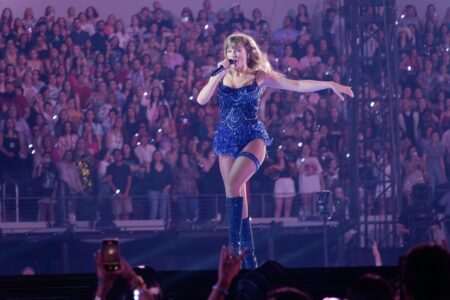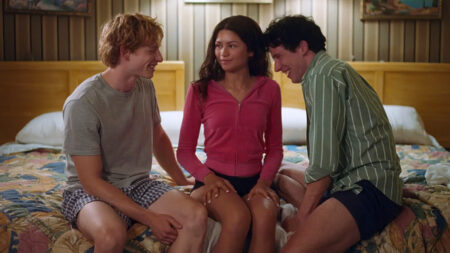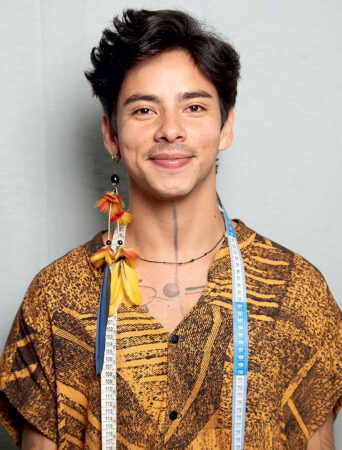
Paralympic Games are ‘Paratodos’
(Rio de Janeiro, brpress) - As Brazil starts to warm up for Rio 2016 Paralympic Games the documentary Paratodos [a Brazilian expression meaning "for all"] follows disabled sports stars from London to Rio, inspiring even more.
(Rio de Janeiro, brpress) – As the Olympic Games flames go out and Brazil starts to warm up for Rio 2016 Paralympic Games, some athletes, including experienced Paralympians and novices, have already got into the overcoming spirt. Brazilian Paralympic stars, such as sprinter Alan Fonteles and wheelchair tennis player Natália Mayara, have enthusiastically travelled across the country carrying the celebrated symbol of the Olympic Games: the Olympic torch. But despite having made history in London 2012 they remain barely known by the public – until September the 7th, Brazil’s Independence Day, when the Paralympic Games kickoff. It’s also when the documentary Paratodos reopens on cinemas across Brazil and maybe abroad – it’s already on Netflix, iTunes, Vimeo on Demand and Google Play.
One of Paratodos stars is Alan Fonteles. The sprinter shocked the world by beating favourite Oscar Pistorius in the final of the T44 200m in London 2012. Fontetes was the first disabled athlete in the Games history to compete among conventional sprinters even with his both “original” legs missing. Suddenly he was on the cover of newspapers, signing sponsorship contracts and became a symbol of the Paralympics. A year later, in Lyon, France, he won three gold medals in the 100m, 200m and 400m.“It’s been a unique experience to represent the country on home soil in front of my fans”, the sprinter said after carrying the torch.
Can do approach
The film Paratodos [a Brazilian expression meaning “for all”] follows Alan Fonteles’ way from London to Rio, as well as selected Brazilian Paralympic sport stars. Showing their enormous efforts not only to reach classification but to live their lives with physical deficiencies, Paratodos is above all a claim for inclusion. “If you look at what a person can do rather than what he/she cannot do, the perspective changes and loses the poor little vision,” says Andrew Parsons, president of the Brazilian Paralympic Committee.
“I am a huge sports fan and I was impressed as I did not have heard enough about the performance and the universe of these fabulous athletes until submerging into the making of this film,” says director Marcelo Mesquita. It is an uplifting and exciting production, powerful enough to make us all willing to dedicate more attention to the Paralympic Games. “We know that the inclusion goes beyond accessibility – it is a social issue,” Mesquita added. “Paratodos leaves no doubt about it”.
Showing the inspiring trajectory of Brazilian disabled athletes since their surprising results at the London Olympics, Paratodos concentrates high doses of the Olympic mood – the same one that was missing before the Olympic Games actually started in Rio, spreading faster as the speed of light among Brazilians and foreign visitors as the Games were transformed in a celebration of sports, inclusion and joy. “The idea was obviously making a film to transcend the sports world. Our hope lies on the fact that what we see on screen could be a motivation for citizens and politicians to rethink priorities on areas such as education, health and access to culture.”, stresses director Marcelo Mesquita.
In deed, Paratodos has an undeniable mobilising power: showing that winning is possible even facing so much adversity. The lives and challenges the athletes have overcame are a clear metaphor of the problems and aspirations of Brazil as a nation. Paratodos also tries to answer a key question: how a country that is in 72a, position on the Human Development Index (HDI) may be the third power in Paralympic sport? The answer is not an easy one. But Paratodos teaches the formula: determination and hard work.
Undermining prejudice
“If we want to talk about inclusion we have to start with an educational campaign, in order to neutralise prejudice”, says the director. Paratodos will be distributed in two thousand Brazilian public schools, being a unique project with this dimensions involving a movie in Brazil,” announces Marcelo Mesquita. The film premiered in cinemas throughout Brazil, with half-price tickets. It was also part of a never seen project aiming to spread the message throughout schools, with screenings taking place at the Brazilian public schooling network. Since thousands of students have watched it, the film is competing to be shown at the SXSW Festival, in USA.
“The filme shows a Brazil that works”, says the proud film maker. “We did not choose the stories that are on screen – they haven choosen us. Regardless of victory or defeat, what counts is to compete and win always – at the podium, in the heart, in life”, he says. During the first five minutes of the film, the audience starts to vibrate with the victory of sprinter Alan Fonteles coming “out of nowhere”, as an hysterical voice announced through the London Paralympic speakers. Alan broke the record of 100m and 200m, winning gold in the 200m.
Multi-coloured blindfolds
While Paratodos rolls as a beautiful and well photographed production shot in six countries over four years, we also get to know the blind runner Terezinha Guilhermina, another Brazilian star who won six Paralympic medals: three golds, one silver and two bronze. Guilhermina is famous for the multi-coloured blindfolds she wears when competing. “Carrying the Olympic symbol here in my country has a lot of significance,” said the sprinter from Esmeraldas in the state of Minas Gerais. “It will be kept into my box of unforgettable moments.”
In Salvador, Bahia state, the Olympic torch relay started off in the hands of swimmer Marcelo Collet. In 2010, Collet became the first Paralympic athlete to cross the English Channel. He will also be competing at the Rio 2016 Games.“Sport has been my life since childhood. This flame is what we all wait for every four years,” said the swimmer who opened the torch relay in Pelourinho, in the historic centre of Salvador.
Endless energy
The opening ceremony of the Rio 2016 Paralympic Games will “pass on the endless energy the athletes have,” said Fred Gelli, one of the directors, at a press conference on Friday (2 September) at the Maracanã Stadium, the stage for the spectacular next Wednesday evening.
“When we see a person who suffered an accident and then became an athlete, for us this is the best example of overcoming,” added Gelli, a designer and university lecturer in biomimetics, the study of nature with the aim of solving complex human problems. He is working alongside fellow directors Marcelo Rubens Paiva, a writer and journalist, and artist Vik Muniz, who will create a live work of art during the ceremony.
Double lower leg amputee star
One of the stars of the show will be American snowboarder Amy Purdy, who could be said to embody Gelli’s vision of the inspirational impact of para-athletes. Purdy became a double lower leg amputee after contracting bacterial meningitis at the age of 19.
But she returned to the slopes on her prosthetics and won a bronze medal at the Sochi 2014 Paralympic Games, as well as becoming a model, actress and motivational speaker. Purdy, who shot to fame in the USA on the TV show Dancing with the Stars and will also work as a reporter for NBC during the Games, will perform a four-or five-minute routine that has required intense training during 45 days in Rio. And she guarantees she will do the samba. No doubts about it, when you watch the video below:
Read more on the filme Paratodos here (in Brazilian Portuguese).




